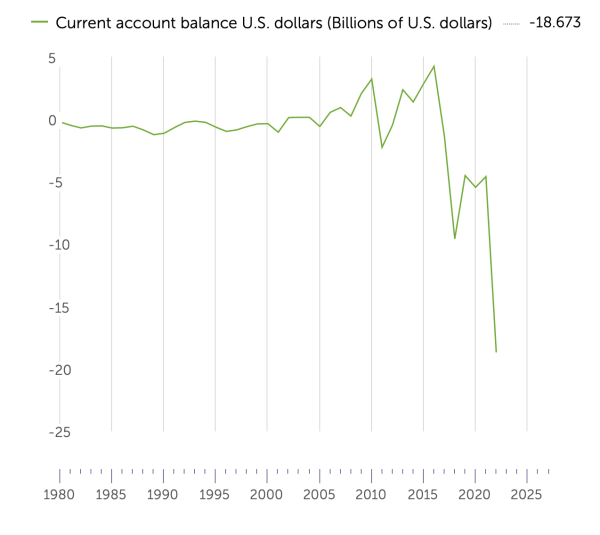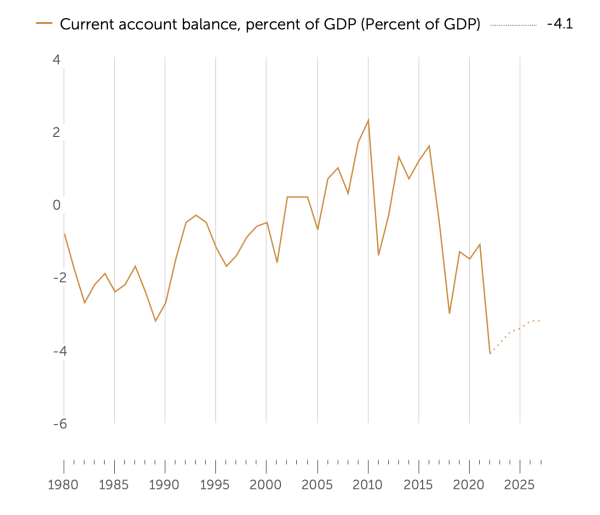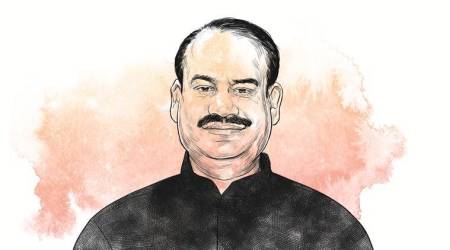Last month, Bangladesh reached out to the International Monetary Fund (IMF) seeking help. According to an IMF press release, Bangladesh will receive economic assistance worth $4.5 billion (around Rs 37,000 crore).
This is a significant reversal for an economy that overtook India’s in terms of per capita income in 2020 on the back of robust economic growth for the better part of the last two decades, and especially since 2017.
Preparing for UPSC? Use CRACKUPSC20 code here to get an extra 20% discount on Indian Express subscription.
Wanting to capitalise on the growing economic distress, the principal opposition party, the Bangladesh Nationalist Party (BNP), has organised several protest rallies across the country. It hopes to corner the Awami League government and its leader Prime Minister Sheikh Hasina, who has dominated Bangladeshi politics for well over a decade now.
What’s wrong with Bangladesh’s economy?
If one looks at the growth of Gross Domestic Product or GDP, Bangladesh continues to post very impressive numbers. For one, unlike many countries including India that saw their GDP contract in 2020 following the Covid-19 pandemic, the economy of Bangladesh actually grew during this period. Its GDP grew by 3.4% in 2020, by 6.9% in 2021, and it is expected to grow by 7.2% in 2022.
However, Bangladesh’s problems lie elsewhere.
The IMF states that “Bangladesh’s robust economic recovery from the pandemic has been interrupted by Russia’s war in Ukraine, leading to a sharp widening of the current account deficit, rapid decline of foreign exchange reserves, rising inflation and slowing growth.”
In other words, while it is true that Bangladesh has posted very impressive economic growth numbers, the Russian invasion of Ukraine has meant four things:
* Inflation spiked to uncomfortable levels as all kinds of commodities such as crude oil became costlier. The inflation rate in November was 8.85% as against 5.98% in November 2021. For the 12 months ending November, inflation grew at 7.48% — much higher than 5.48% in the 12 months ending November 2021.
* Bangladesh’s current account balance has gone deep into a deficit — both in absolute terms as well as a percentage of the GDP (see charts; source IMF). The current account balance looks at the gap between the money coming into a country on account of earnings via the export of goods and services and the money going out of the country via the import of goods and services. Bangladesh has typically been hugely dependent on its export earnings, but as the western economies slow down and their consumers put off their demand for a later date, Bangladesh suffers.

* Bangladesh’s currency, the Taka, weakened partly under the pressure of the surge in the US dollar and partly on account of the worsening current account deficit. A weaker Taka further aggravated the inflationary spiral because all imports become costlier still. In December 2021, it took 86 Taka to buy a US dollar. As of today, the exchange rate has worsened to 105 Taka — a loss of more than a fifth of the currency’s value in less than a year.

* The weakness in the external front also resulted in Bangladesh’s foreign exchange reserves getting depleted. Last December, the forex reserves were valued at $46,154 million. As of now, they are just $33,790 million — a fall of more than one-fourth of its total valuation.
How will IMF’s monetary assistance help?
“Bangladesh’s request is part of the authorities’ measures to cushion its economy from the economic disruptions caused by the ongoing war in Ukraine and to manage macroeconomic risks posed by climate change,” states the IMF.
But that is not the only goal.
“Even as Bangladesh tackles these immediate challenges, addressing long-standing structural issues remains critical, including threats to macroeconomic stability from climate change. To successfully graduate from Least Developed Country status and achieve middle-income status by 2031, it is important to build on past successes and address structural issues to accelerate growth, attract private investment, enhance productivity, and build climate resilience,” states IMF.
Overall, the IMF’s programme hopes to achieve the following goals:
* Creating additional fiscal space through higher revenue mobilisation and rationalisation of expenditures. This will allow the government to increase growth-enhancing spending as well as mitigate the impact on the vulnerable through higher social spending and better-targeted social safety net programs.
* Containing inflation with increased exchange rate flexibility so that the country can buffer external shocks better.
* Strengthening the financial sector by enhancing governance and regulatory aspects.
* Boosting growth potential by creating a conducive environment to expand trade and foreign direct investment among other things.
* Strengthening institutions to create an enabling environment will help meet climate change objectives.









